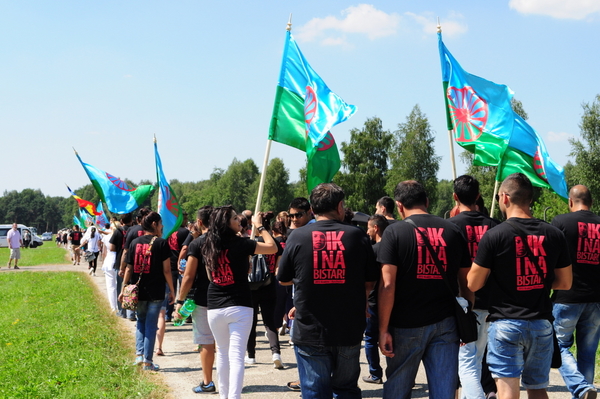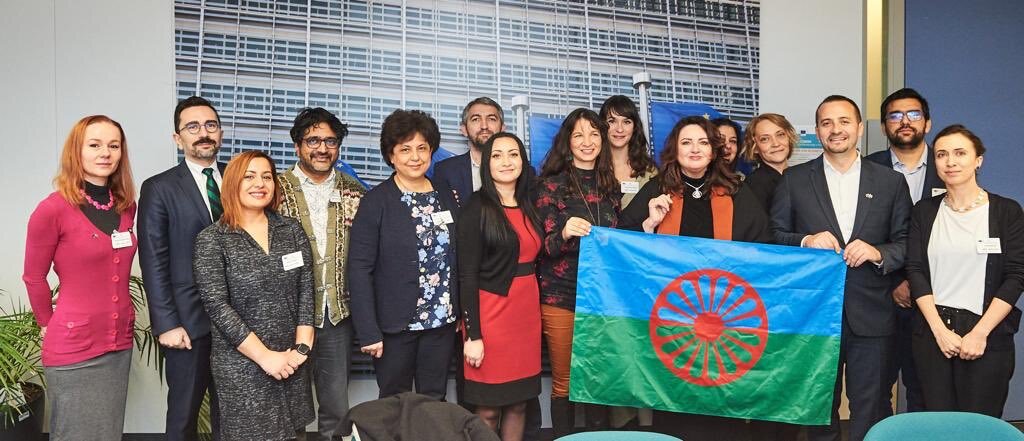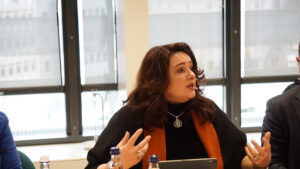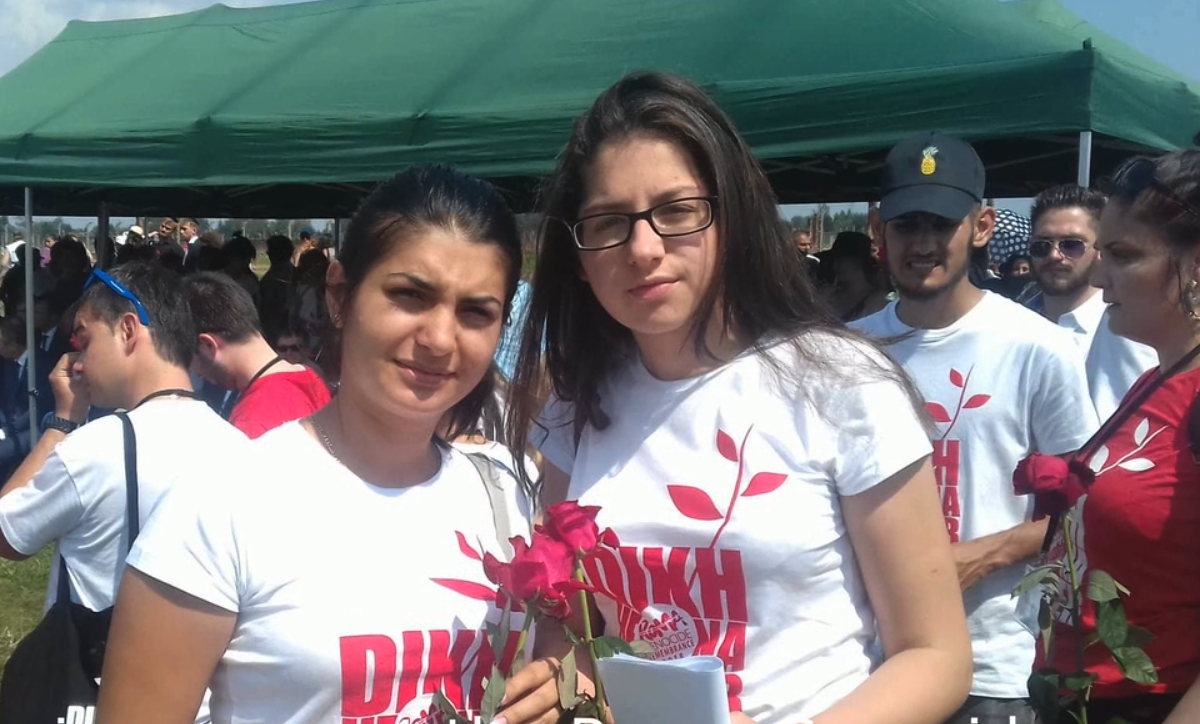“75 years since liberation and a lesson unlearnt! Antigypsyism is still alive and present in our society.”
On 2 August 1944, over 4,300 Sinti and Roma were murdered in the concentration camp Auschwitz-Birkenau. They were taken during the night from their barracks to the gas chamber by SS guards, who only months earlier had been driven back by the fierce resistance of the Romani prisoners fighting with nothing but picks and shovels. Every year on this tragic day, Sinti and Roma around the world come together to commemorate the more than 500,000 Romani people who were murdered in camps, fields, and unmarked trenches all across Europe during WWII.
Although Roma have been part of Europe for centuries, our narratives and contributions to European societies remain largely ignored and on the margins of what European history should be representing, namely united through diversity.
75 years have passed since the end of World War II, but children are still not learning about the Sinti and Roma Holocaust in school. Historical facts about the persecution of Romani people throughout centuries remain unknown and ignored by governments, the media and society at large. The historical responsibility for seeking the truth and reconcile, to recognize what has been done to the Sinti and Roma is only very slowly being taken up by governments.
The lessons of World War II are unlearnt when it comes to the Roma. We are still facing antigypsyism, discrimination, hate speech and exclusion. Prejudices and stereotypes related to our ethnicity remain the primary obstacle in our efforts for an equal start and treatment and in the exercise of our fundamental rights and obligations.
Europe is facing a real challenge to respond to the rise of antigypsyism, which is accelerating in the current crisis. Roma in Europe are more likely to live in poverty than the majority population, have a higher risk of unemployment and have poorer health. They are exposed to racism (with, in some countries, one third to half the population not wanting to work with Roma colleagues), and are more often victims of police brutality. Locked in ghettos supposedly due to Covid-19 safety measures, we became even more targets of populism and hatred, largely ignored by policymakers in Europe.
Today, with the rise of racism and far-right movements across Europe and the world, raising awareness of the Roma Holocaust is urgently necessary. We need recognition, remembrance and commemoration of the Sinti and Roma Holocaust in order to learn for the future by remembering the past, and we need to act in the presence to prevent the past from ever happening again in the future. Ignorance and denial of the Holocaust of Roma and Sinti, as of any other event in the history of a nation, prevents opportunities to learn about each other, from each other; and to set out together on a path of mutual trust, respect and understanding.
This is our world; we must avoid that it is becoming a community of fear and hatred, instead we should strive to be a proud and equal society of mutual respect of all!
On the occasion of the commemoration of the European Roma Holocaust Memorial Day, we as ERGO Network join the efforts of the European Roma Holocaust Remembrance Coalition and call on governments and the international community to:
- Formally recognize the 2nd August as the official Holocaust Memorial Day for Sinti and Roma;
- Build, honor and preserve monuments and memorial sites dedicated to the Sinti and Roma victims of the Holocaust;
- Invest into museums, research centers and other institutions dedicated to Roma Holocaust, Roma History and Roma Culture;
- Make Roma history and culture part of educational curricula and textbook;
- Acknowledge antigypsyism as a specific form of racism targeting Roma communities and adapt diverse preventive and reactive tools to fight it.



 “Roma people have been living in Europe for more than 700 years and have massively contributed to the richness of the European heritage. Yet, for centuries, European societies have turned a blind eye to racism and widespread discrimination of Roma people. We have to change that”, Commissioner Dalli committed to the ERGO Network members during this first meeting with Roma civil society representatives of her mandate.
“Roma people have been living in Europe for more than 700 years and have massively contributed to the richness of the European heritage. Yet, for centuries, European societies have turned a blind eye to racism and widespread discrimination of Roma people. We have to change that”, Commissioner Dalli committed to the ERGO Network members during this first meeting with Roma civil society representatives of her mandate.
